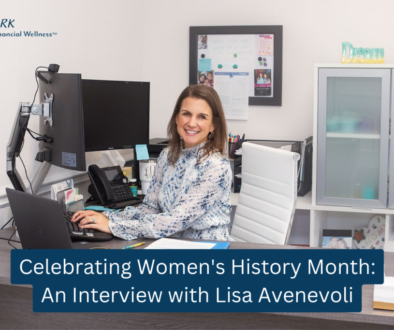Maximize Your Money
How to Maximize Your Money
Maximizing your money is the key to achieving financial freedom and stability. But how do you go about it? Let’s discuss some strategies for making the most out of your finances so that you can achieve your financial goals.
Analyze Your Cash Flow and Budget
You have probably heard this before, but it always bears repeating. The most important step in maximizing your money is to track how much money is coming in and going out, otherwise known as budgeting. Since the word “budget” has a negative connotation and can feel restrictive to certain people, we prefer to use the term “cash flow.” By reviewing your month-to-month expenses, you can identify areas where you can cut back to redirect that money towards your financial goals. Your cash flow analyses should include taking stock of all your monthly expenses, including rent or mortgage payments, utilities, groceries, transportation, eating out, pet care costs, insurance, etc.
When you gain an understanding of what’s coming in versus what’s going out, it’s important to be realistic about your expenses and to account for any unexpected costs that may arise. You can use budgeting apps or spreadsheets to help you keep track of your spending and stay on track with your financial goals.
Invest in a Retirement Plan
Investing in a retirement plan is another way to maximize your money. Retirement plans, such as 401k plans and IRAs, offer tax benefits and can help you save for retirement. If your employer offers a 401k plan, you should contribute enough to take advantage of any employer match. If your employer does not offer a retirement plan, consider an IRA.
When choosing a retirement plan, it’s important to consider your risk tolerance, age, and the amount you’ll need to retire. Be sure to also have a solid understanding of your investment options, related fees, and how taxes factor in. There is no one size fits all option. A detailed financial plan can help you better understand what makes most sense for you!
Pay for Education using a 529 Account
Instead of paying for tuition out of pocket, consider putting money away in a 529 saving account. Your contributions could qualify for state tax savings, earnings in the plan will grow tax-deferred, and withdrawals are tax-free as long as they go toward qualified educational expenses like tuition and fees, books, computers, room and board, and special needs equipment for students attending a college or university. The IRS has also expanded qualified expenses to include K-12 tuition and student loan repayments – both with some caveats.
Every state offers at least one 529 plan option. You don’t have to invest in your state’s 529 plan, but it might offer extra tax savings if you do.
Pay off High-Interest Debt
Paying off high-interest debt is another way to maximize your money. High-interest debt, such as credit card debt, can be a major drain on your finances. By paying off high-interest debt, you can free up money that can be redirected towards your financial goals.
One strategy for paying off debt is to focus on paying off the debt with the highest interest rate first, while still making minimum payments on your other debts. You can also consider consolidating your debt with a personal loan or balance transfer credit card to lower your interest rates.
Avoid Lifestyle Inflation
Lifestyle inflation is when your expenses increase as your income increases. While it may be tempting to upgrade your lifestyle as your income grows, doing so can prevent you from achieving your financial goals. Instead, focus on living below your means and redirecting the extra money towards your financial goals.
Take Advantage of Rewards Programs
Rewards programs can be a great way to maximize your money. Many credit cards offer cash back, points, or miles for purchases. You can also take advantage of rewards programs at retailers, hotels, and airlines. The key to taking advantage of credit card rewards is to always pay off your balance so you don’t fall victim to high interest rates. Treat your credit cards like cash, not like credit.
Conclusion
Maximizing your money requires discipline and a commitment to your financial goals. Remember, the key to maximizing your money is to be intentional with your spending and to make your money work for you. Keep in mind that achieving your financial goals takes time and effort, but with the right mindset and habits, you can achieve the life you want.
Disclaimer:
This work is powered by Advisor I/O under the Terms of Service and may be a derivative of the original.
The information contained herein is intended to be used for educational purposes only and is not exhaustive. Diversification and/or any strategy that may be discussed does not guarantee against investment losses but are intended to help manage risk and return. If applicable, historical discussions and/or opinions are not predictive of future events. The content is presented in good faith and has been drawn from sources believed to be reliable. The content is not intended to be legal, tax or financial advice. Please consult a legal, tax or financial professional for information specific to your individual situation.

This content not reviewed by FINRA
ARK Financial Wellness, LLC is an independent firm with advisory services offered through Blackridge Asset Management, LLC, a Registered Investment Adviser. Blackridge Asset Management is an SEC Registered Investment Advisory Firm.
ARK’s YouTube Videos
SECURE Act 2.0 Highlights
What is the SECURE Act? Lisa shares a brief summary of what it is, what the original bill included and how the changes in the SECURE Act 2.0 can help you save for a more successful retirement.
Click here to check out our blog post on this topic.
How to Start Out on the Right Foot in 2023
Lisa shares some questions to ask yourself and your loved ones which will help you to grow financially and personally in the new year.
What is a Fiduciary?
Lisa talks about what a fiduciary is and why its so important to work with someone who is held to a fiduciary standard when it comes to managing your money.
Read more about our Fiduciary Commitment here.
The Financial Future is Female
Traditionally, men have handled the finances. But at ARK, we are finding that more and more women, regardless of their relationship status- Single, married, divorced, widowed – are making the big financial decisions and are managing the day-to-day finances. Watch this video to learn more about the unique challenges and the many opportunities that women have when it comes to our finances. Check out the blog post on this topic also.
Planning for Your Future…and for Your Today
We find that clients sometimes struggle with doing what is needed to save for their future needs and goals, but also having enough leftover to live for today. Watch this video to find out what it means to live for today.
How Much Should I be Saving and Spending at Age 40?
“Where should I be – financially – at age 40?” Or any age for that matter? We get this question a lot at client meetings. While Google and benchmarks can help you get started, they can’t give you the answers you need for your particular situation, lifestyle and goals. Watch more to get tips on how to save and spend your money wisely at any age!
Real vs Fake Financial Advisors
Set the bar high, and do your homework in seeking a Financial Advisor to aid in making crucial financial decisions for you and your family. Get a good understanding of their background, education, experience and services by using free online tools to help you differentiate real from fake Financial Planners/Advisors!
If you have more questions about this, visit our FAQs page.



